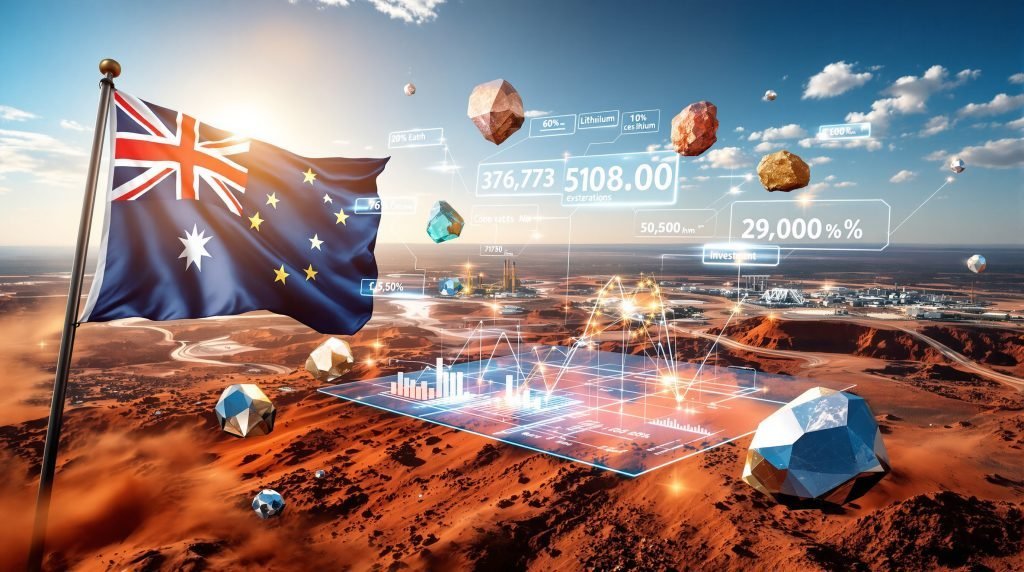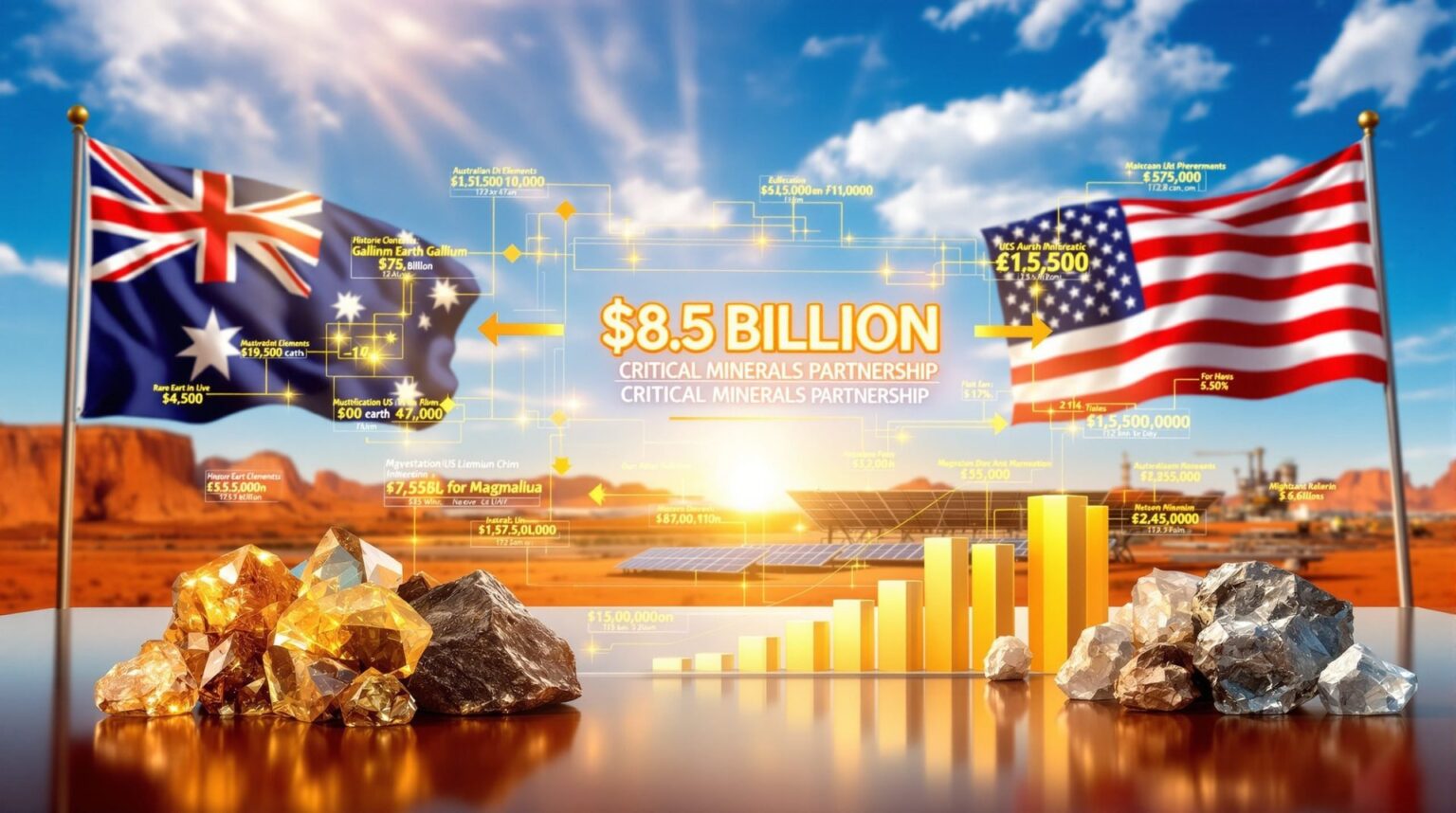Australia Strikes Back at China’s Rare Earth Dominance: Landmark US Deal Unleashes $8.5 BILLION in Critical Mineral Projects
- US-Australia Critical Minerals Framework to ‘encourage greater investment’ in Australian mining and processing
- Multi-billion-dollar deal to break China’s stranglehold on rare earths, with US and Australia to invest at least $1.5 billion each
- Critical minerals stocks surge as investors eye ‘re-emergent’ rare earth supply chain outside of China
Australia’s critical minerals industry has welcomed a groundbreaking deal with the US, worth a staggering $8.5 billion, aimed at breaking China’s grip on the rare earth market. The US-Australia Critical Minerals Framework will see both countries invest at least $1.5 billion each over the next six months, in a bid to ‘encourage greater investment’ in Australian mining and processing.
“This is an acknowledgement of Australia’s strategically important role in the development of new technologies, defence capabilities and renewable energy infrastructure,” said Tania Constable, CEO of the Minerals Council of Australia. “It confirms Australia’s fundamental role in the global supply chain of the very minerals, materials and rare earths that the world requires.”
Analysts at UBS have hailed the deal as a ‘landmark’ move, saying it will pave the way for a ‘re-emergent’ rare earth supply chain outside of China. However, they have also raised concerns about the lack of detail in the announcements, saying ‘project specifics are so far elusive’.
Critical minerals stocks have surged in response to the deal, with Alcoa Corp surging 7.49 per cent to $59.68 and Lynas Rare Earths plummeting to $18.96, down by 7.56 per cent. Meanwhile, South32 lifted 5.1 per cent to $3.28, Pilbara Minerals gained 5.6 per cent to $2.86, and Mineral Resources climbed 2.5 per cent to $42.41.

Two strategically significant projects, the Alcoa-Sojitz project in Western Australia and Arafura’s Nolan project in the Northern Territory, have been prioritised under the deal. The planned gallium plant, a joint venture between Alcoa and a Japanese firm, will receive up to $US200 million from the Australian government, as well as an unspecified amount from the US.
Australia’s Prime Minister Anthony Albanese and US President Donald Trump have committed to investing at least $US1 billion each over the next six months. The deal has been hailed as a significant step in the development of Australia’s rare earths supply chain, with experts saying it will help to ‘de-risk’ the production of electric vehicles and wind turbines.
However, some experts have raised concerns that more needs to be done to develop the market for Australian minerals, including investing in refineries and magnet production. Lian Sinclair, an economic geographer at the University of Sydney, said that without investment in these areas, Australian miners will continue to struggle to find international buyers.
“The US, Europe and South Korea need to focus investment in their ‘midstream’, if they want to ‘de-risk’ EVs and wind turbines from Chinese rare earth supply,” Dr Sinclair said. “Australian rare earths mining company Lynas, which sells into the Japanese market, is the exception rather than the rule.”

